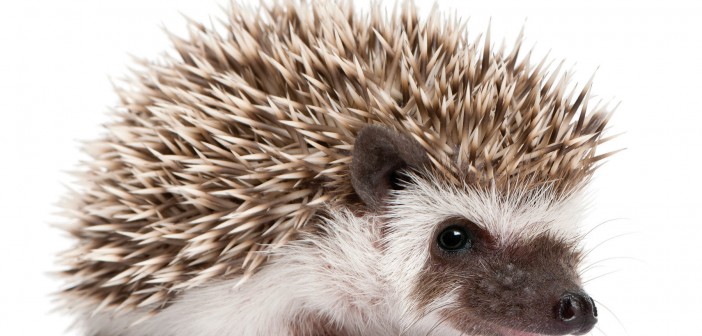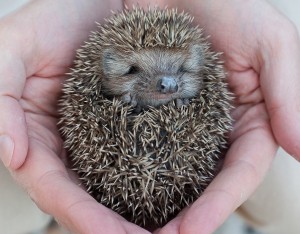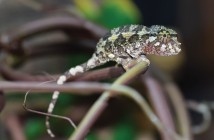a great exotic pet for teens
By Neil Moss, DVM
Hedgehogs made a reappearance in Utah in the last few years and make cute pets. Naturally solitary and nocturnal, they are a low maintenance pet and are ideal for your teenager allowing for the fact that they are not cuddly!
They originate from Central Africa and grow to about five to seven inches long, are covered in numerous spines which average ¼” to ¾” long. They will roll up in a ball if threatened and hiss and jump, which makes a formidable challenge for the veterinarian when they have to go to the vet! They are loyal to their human and can only recognize their handler by smell because their eyesight is quite poor.
Being opportunistic omnivores they will eat insects, small snakes, amphibians, bird eggs, snails, worms, fruit, and grass roots. They require a diet high in protein, low in fat, and must also consume chitin, found only in the exoskeletons of insects. At home you can feed an insectivore diet (which supplies the chitin), supplemented with fruit, hard boiled eggs, vegetables, and mealworms. The low fat part of the diet is important because a lot of pet hedgehogs become obese. The reason for the obesity problem is that in the wild they can travel miles every night just looking for food, whereas in a home they may be stuck in their cages for weeks or months on end without exercising. For this reason their calorie intake should be carefully regulated.
What are some common problems seen in hedgehogs?
I have already mentioned obesity.
The second most common condition I see is mites. They become exposed to mites soon after birth by being infected from their mother. It can take years for the infestation to reach the point where they are itchy, sleep deprived and loosing quills. Mites are diagnosed microscopically and will be best treated using Ivermectin (although this may need to be used with caution).
Sometimes as they age they become very unsteady on their legs, which most often starts in the back end. Wobbly hedgehog syndrome is a neurological condition that is a form of creeping paralysis. Sadly there is no known effective treatment, but there are many supplemental medications that may help extend the life of your hedgehog. It is a non-painful condition and life is only limited by the ability to forage.
Sadly, hedgehogs are very prone to cancer especially as they age. Any visible swelling should be assessed by the veterinarian. Remember that not all swellings are cancer and often they can be treated effectively. Cancer of the bladder may lead to blood in the urine. This is another symptom that should be investigated early on.
In conclusion, hedgehogs are fun to own and very loyal to their keepers. Keep the calories down and the protein up and play with them often. A yearly visit to the vet will help detect problems early and keep your prickly friend healthy for years.
Dr. Neil Moss graduated from the Royal Veterinary College, London, and has worked in England; Newfoundland, Canada and Utah. Owner of the Kaysville Veterinary Hospital, he works with dogs, cats, exotic mammals, reptiles and birds. He is a former President of the Utah Veterinary Medical Association; Utah Veterinarian of the Year for 2012; serves on the Educational Commission for Foreign Veterinary Graduates and currently serves as the Utah delegate to the American Veterinary Medical Association.





